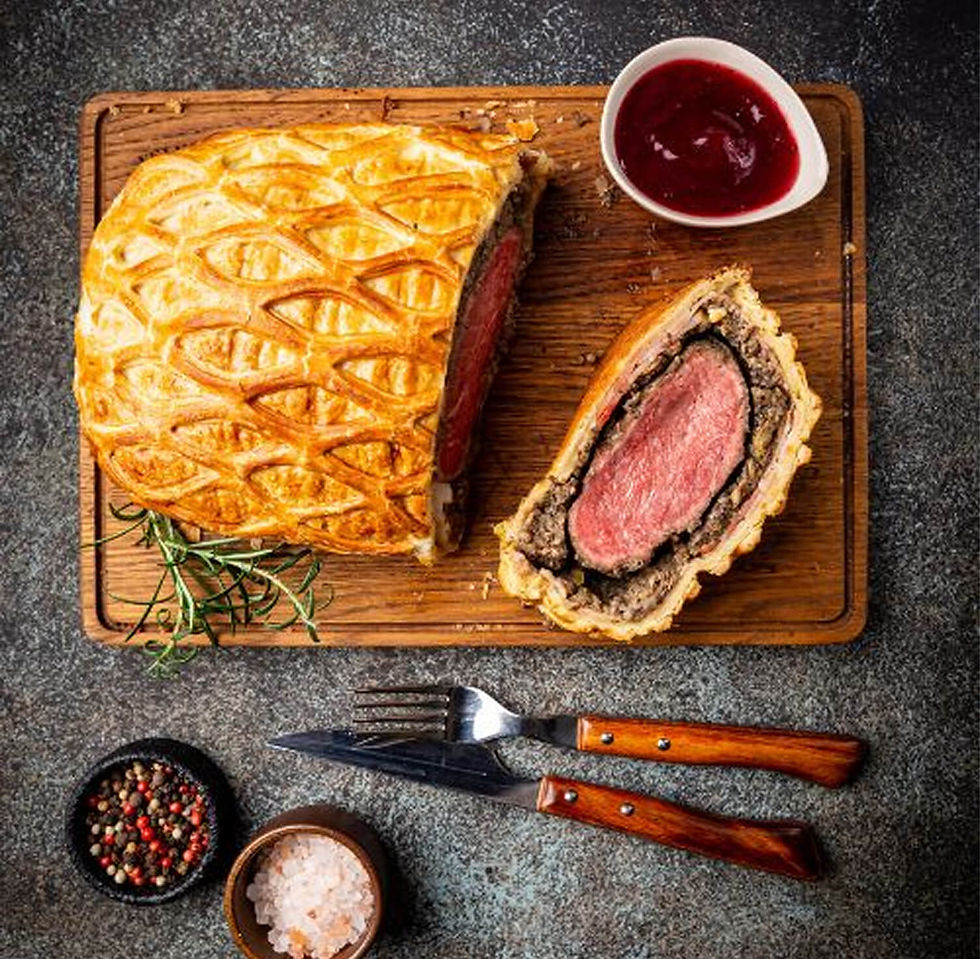Fiber: The Ultimate Key to Aging Strong and Healthy
- Jen Simon
- Mar 25
- 2 min read
Updated: Mar 26

As we get older, maintaining good health becomes more important than ever. One key dietary component that often gets overlooked is fiber. This essential nutrient plays a crucial role in digestion, heart health, and overall well-being, making it a must-have in any balanced diet, especially for aging adults.
What Is Fiber and Why Does It Matter?
Fiber is a type of carbohydrate that the body cannot fully digest. Unlike other carbs, fiber passes through the digestive system largely intact, helping to regulate various bodily functions. It comes in two forms:
Soluble Fiber – Dissolves in water and forms a gel-like substance, helping to lower cholesterol and stabilize blood sugar levels. Found in oats, beans, apples, and citrus fruits.
Insoluble Fiber – Adds bulk to stool and aids in digestion, promoting regularity. Found in whole grains, nuts, seeds, and vegetables.
The Benefits of Fiber for Aging Adults
Supports Digestive Health – Fiber helps prevent constipation, a common issue as we age due to slower digestion and decreased physical activity.
Maintains Healthy Weight – High-fiber foods promote satiety, helping to control appetite and prevent overeating.
Regulates Blood Sugar Levels – Soluble fiber slows sugar absorption, reducing blood sugar spikes and lowering the risk of type 2 diabetes.
Promotes Heart Health – Fiber can lower LDL (bad) cholesterol levels, reducing the risk of heart disease and stroke.
Supports Gut Health – A high-fiber diet feeds beneficial gut bacteria, improving digestion and immune function.
Reduces the Risk of Certain Cancers – Studies suggest that fiber-rich diets are linked to a lower risk of colorectal cancer.
How Much Fiber Do You Need?
The recommended daily intake of fiber varies by age and gender:
Women over 50: At least 21 grams per day
Men over 50: At least 30 grams per day
Best High-Fiber Foods to Include in Your Diet
Fruits: Apples, pears, berries, bananas, oranges
Vegetables: Broccoli, carrots, spinach, sweet potatoes
Whole Grains: Oats, brown rice, quinoa, whole wheat bread
Legumes: Lentils, black beans, chickpeas, peas
Nuts & Seeds: Almonds, chia seeds, flaxseeds, walnuts
Simple Ways to Increase Fiber Intake
Swap white bread and pasta for whole grain options.
Start your day with a high-fiber breakfast like oatmeal or whole-grain cereal.
Snack on raw veggies, fruits, or nuts instead of processed snacks.
Add beans or lentils to soups, salads, and stews.
Drink plenty of water to help fiber move through your system efficiently.
Final Thoughts
Fiber is a powerhouse nutrient that provides countless health benefits, particularly as we age. By incorporating more fiber-rich foods into your daily meals, you can improve digestion, maintain a healthy weight, and support heart health. Small changes can make a big impact—so start adding more fiber to your diet today and enjoy the long-term benefits of a healthier, more vibrant life!
1
Searing the Beef
Sear beef fillets on high heat for 2 minutes per side to form a golden crust. Let it cool before proceeding to keep the beef tender.
1
Searing the Beef
Sear beef fillets on high heat for 2 minutes per side to form a golden crust. Let it cool before proceeding to keep the beef tender.
1
Searing the Beef
Sear beef fillets on high heat for 2 minutes per side to form a golden crust. Let it cool before proceeding to keep the beef tender.
1
Searing the Beef
Sear beef fillets on high heat for 2 minutes per side to form a golden crust. Let it cool before proceeding to keep the beef tender.
Notes



1
Season the good fresh beef fillets with salt and black pepper. Heat olive oil in a pan over high heat and sear the fillets for 2 minutes per side until it fully browned. Remove the beef from the pan and brush with a thin layer of mustard. Let it cool.



1
Season the good fresh beef fillets with salt and black pepper. Heat olive oil in a pan over high heat and sear the fillets for 2 minutes per side until it fully browned. Remove the beef from the pan and brush with a thin layer of mustard. Let it cool.



1
Season the good fresh beef fillets with salt and black pepper. Heat olive oil in a pan over high heat and sear the fillets for 2 minutes per side until it fully browned. Remove the beef from the pan and brush with a thin layer of mustard. Let it cool.



1
Season the good fresh beef fillets with salt and black pepper. Heat olive oil in a pan over high heat and sear the fillets for 2 minutes per side until it fully browned. Remove the beef from the pan and brush with a thin layer of mustard. Let it cool.
Instructions
Quality Fresh 2 beef fillets ( approximately 14 ounces each )
Quality Fresh 2 beef fillets ( approximately 14 ounces each )
Quality Fresh 2 beef fillets ( approximately 14 ounces each )
Beef Wellington

Beef Wellington
Fusion Wizard - Rooftop Eatery in Tokyo
Author Name

Beef Wellington is a luxurious dish featuring tender beef fillet coated with a flavorful mushroom duxelles and wrapped in a golden, flaky puff pastry. Perfect for special occasions, this recipe combines rich flavors and impressive presentation, making it the ultimate centerpiece for any celebration.
Servings :
4 Servings
Calories:
813 calories / Serve
Prep Time
30 mins
Prep Time
30 mins
Prep Time
30 mins
Prep Time
30 mins
Comments